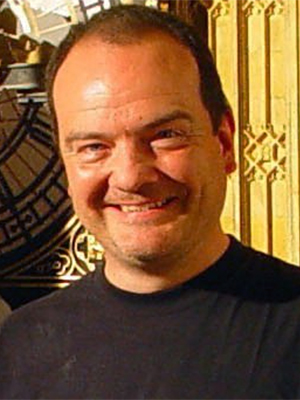Mike Tucker
| Acting Credits | expand all 7 roles | |
|---|---|---|
Dalek: The Time of the Doctor(uncredited) | 1 credit in 1 entry |  |
| Production Credits | ||
Visual Effects Assistant: Dragonfire(as Michael Tucker)(uncredited); The Happiness Patrol(uncredited); Silver Nemesis(uncredited); The Greatest Show in the Galaxy(uncredited); Ghost Light(uncredited); The Curse of Fenric(uncredited); Survival(uncredited) | 23 credits in 7 entries |  |
Visual Effects Designer: as Visual Effects Designer: Dimensions In Time[Misc] | 2 credits in 1 entry |  |
Costumes: as Costume Supplier: 30 Years In The TARDIS[Factual] | 1 credit in 1 entry |  |
Visual Effects: 30 Years In The TARDIS[Factual]  | 1 credit in 1 entry |  |
Writer: The Genocide Machine[BF]; The Stone's Lament[BF]; Dust Breeding[BF]; The Bellotron Incident[BF]; The Draconian Rage[BF]; The Warehouse[BF]; Order of the Daleks[BF] | 7 credits in 7 entries |  |
| 13 credits in 11 entries |  | |

(this image appears for illustrative purposes only and no attempt is made to supersede any copyright attributed to it)
Mike Tucker
Mike Tucker is a special effects expert who worked for many years at the BBC Television Visual Effects Department, and now works as an Effects Supervisor for his own company, The Model Unit.
He is also the author of a variety of spin-offs relating to the television series Doctor Who and novelisations based on episodes of the television series 'Merlin'. He sometimes co-writes with Robert Perry.
Tucker's early work for the BBC was as a holiday relief assistant on the 1982 history series Timewatch. Following this, he became a full-time member of the BBC Visual Effects Department working on practical effects and models for a range of BBC programmes including Casualty, Top of the Pops, EastEnders, The Singing Detective, Proust and Tomorrow's World among many others. He was one of the principal effects crew for Red Dwarf series 1 - 7 and worked as an effects assistant on the final four series of the original Doctor Who. His association with Doctor Who continued long after the series was "rested" by the BBC, working on the Children in Need special Dimensions in Time.
He became a fully fledged effects supervisor in the early 1990s, handling the effects for shows including 'I Was a Rat', '999 International', 'Raging Planet' and 'Twister Week'. Starting to specialise in miniature effects he went on to handle model sequences for 'Egypt's Golden Empire', 'Disasters at Sea', 'Nelson's Island' 'Billy and the Fighter Boys', 'Hiroshima' and 'The Brighton Bomb'.
In 2005, Tucker became the first person to work on the original series of Doctor Who to work on the revived version starring Christopher Eccleston as model work supervisor, work which continues to the present day. Following the closure of the BBC effects department in 2004 he set up his own company 'The Model Unit' based initially at Ealing Studios before moving on to Wimbledon Studios in 2012. The Model Unit has contributed miniature effects sequences for varied projects such as the Munich air disaster segment of BBC's 'Surviving Disaster' series, 'Krakatoa - The Last Days', also for the BBC, 'Moonshot' and 'Primeval' for ITV, 'Human Body - Pushing the Limits', 'Clash of the Dinosaurs' and 'Last Day of the Dinoaurs' for the Discovery Channel and the feature film 'Atonement' for Working Title Films
In May 2006, Tucker won a BAFTA Craft Award for his special effects work on the drama-documentary Hiroshima.
In July 2008 Tucker was part of the team nominated for a Primetime Emmy for Outstanding Visual Effects in a Television Series for his work on the "Strength" episode of Discovery Channel's 'Human Body - Pushing the Limits'.
Biography from the Wikipedia article, licensed under CC-BY-SA



 Home Region:
Home Region:
